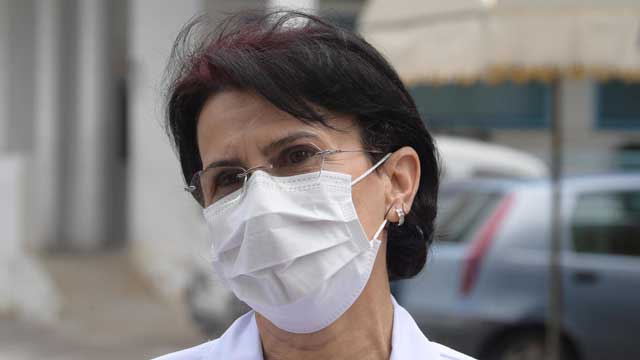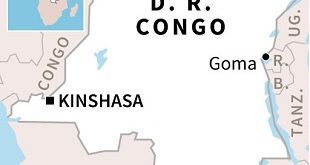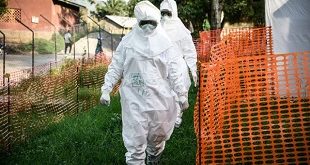
Tunis, Tunisia | AFP | The feared impact of coronavirus on Tunisia’s fragile public health system has provoked a flurry of innovation from robotics to digitalisation efforts to bolster the North African country’s pandemic response.
The government has even turned to students for help, asking the engineering school in Sousse, south of the capital Tunis, to task its students with designing a locally made ventilator as their end-of-year project.
Ventilators are crucial for treating critically ill COVID-19 patients, but as in many countries, Tunisia’s poorly equipped hospitals lack sufficient numbers of the devices.
Costs and delivery times for ventilators have increased dramatically.
“Students, teachers and doctors have come up with a functioning prototype,” said Aref Meddeb, the school’s director.
“This is the first time these machines have been made in Tunisia. It shows that there is real potential here.”
Other Tunisian researchers have developed plans for a simplified respirator made with 3-D printed parts.
It will soon be made freely available, allowing undeveloped countries without access to sophisticated equipment to make their own.
“We are using everything that we can find open source and the help of a Tunisian engineer specialised in respirators,” said Khalil Allouch, an engineering student on the local respirator project based in Tunis.
“This crisis has shown us we can be more self-sufficient.”
– Rebuild on this basis –
Tunisia graduates thousands of doctors and engineers with internationally recognised qualifications annually. But with low salaries and few local opportunities, many emigrate.
While Tunisian laboratories are struggling to keep up with COVID-19 testing, Tunisia was one of the first countries in the region to decode the local strain of the virus, a necessary step towards developing a vaccine.
The Pasteur Institute in Tunis is one of few African institutions leading research into a vaccine.
“Other countries are in more advanced stages but that doesn’t guarantee that we will have rapid access to vaccines,” said Hechmi Louzir, director of the institute.
“If we managed (to develop a vaccine), it would be extraordinary.”
On the diagnostic side, Tunis engineering school Insat is working on an artificial intelligence programme to evaluate the probability of infection based on an X-ray of the lungs.
“The crisis has exposed us,” Prime Minister Elyes Fakhfakh admitted on television, but it has also “revealed solid competence” in the fields of information technology and artificial intelligence.
“After coronavirus we will rebuild on this basis,” he said.
Tunisia has reported 38 deaths and fewer than 1,000 cases of coronavirus, but the impact of the lockdown in effect since March 22 has decimated the economy.
The government is eager to highlight the Tunisian response to the virus, creating a website to showcase the country’s many innovations both by government and non-government bodies.
These include digitisation efforts by previously technophobic government bodies.
The interior ministry has even started issuing some documents — waivers for movement during lockdown — online.
The health ministry has adopted an application developed by students to track hospital bed availability and facilitate transfers and the deployment of extra emergency bed space.
In the private sector, a Tunisian robotics company is developing devices for policing and to help with screening patients on arrival at hospital.
“We are not overwhelmed yet,” said Dr Jalila Ben Khelil, head of the country’s main COVID-19 unit. But “we need to explore all avenues to get out” of this situation.
 The Independent Uganda: You get the Truth we Pay the Price
The Independent Uganda: You get the Truth we Pay the Price


